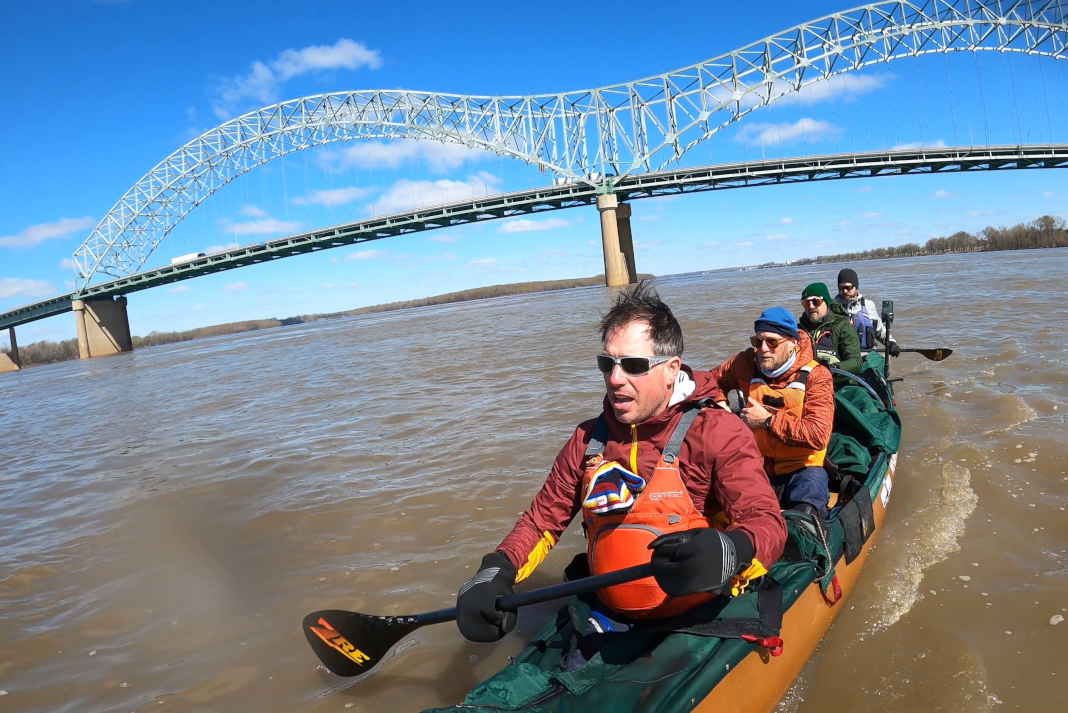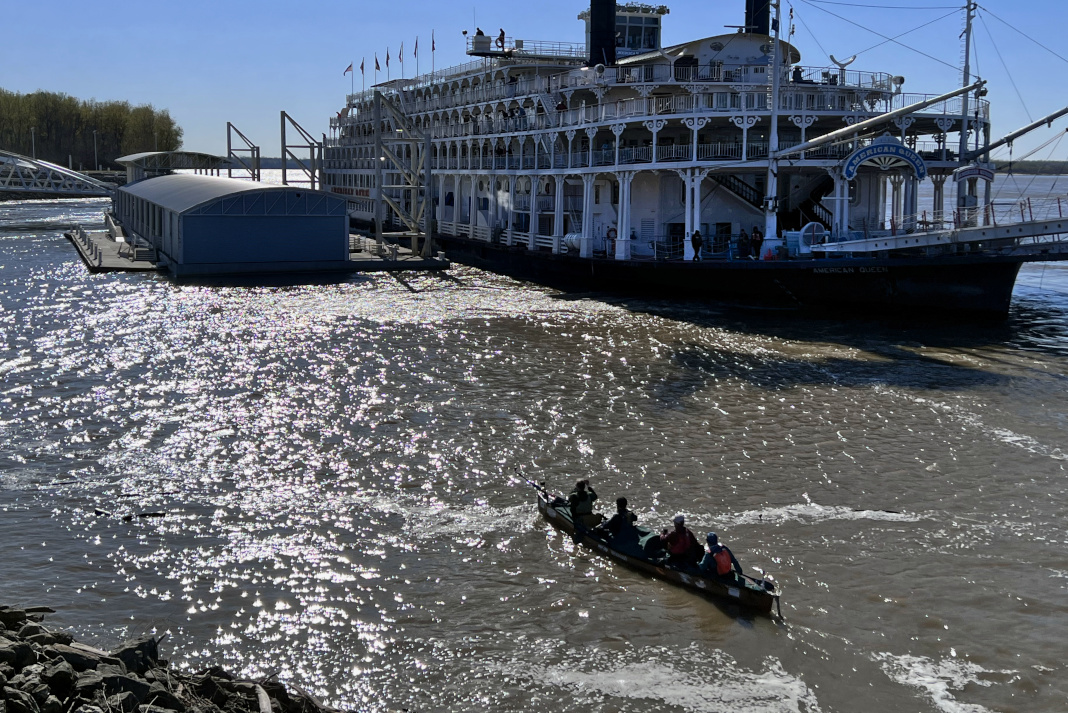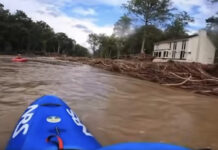Paddler Scott Miller has a score to settle with the Mississippi River speed record.
This May, Miller and his three teammates Paul Cox, Judson Steinback and Wally Werderich, will attempt to break the record for “rowing the length” of the mighty river, journeying 2,296 miles from the headwaters in Lake Itasca, Minnesota, to the Gulf of Mexico.
“It’s sort of like a Lord of the Rings or Huck Finn-type odyssey, to get to experience that thrill of adventure,” said Miller in an interview.
A Score To Settle With The Mississippi Speed Record
The endeavor, dubbed Mississippi Speed Record (MSR), is years in the making. The pandemic scuttled Miller’s plans in 2020 with teammate KJ Millhone. Then, in the spring of 2021, Miller and Millhone formed rival teams and launched just weeks apart. Millhone’s team paddled the river in 17 days, 19 hours, and 46 minutes, breaking a record that had stood for 18 years.
Two weeks later, Miller’s team was on the final stretch through Louisiana when a tropical depression brought big wind and waves and sank their canoe.
“I knew pretty quickly I wanted to try again,” Miller shared. “There’s so much we learned from the last attempt that will give us a chance to be even better this time.”
“We have the benefit of the experience but also the burden,” said Mike “Moose” Dougherty, who will reprise his role as support team leader. “Sometimes it’s better not to know what’s coming.”

What It Takes To Paddle The Length Of The Mississippi
The fourth-longest river system in the world will take them from the remote and wild headwaters of Minnesota, past towering bluffs in Iowa and rolling hills in Illinois, to the mile-wide stretches in the South.
The risks are many, especially at night: The northern headwaters are the most physically demanding and technical, full of winding turns, rocks, rapids, strainers and portages.
When the river opens up near Minneapolis, the team will encounter locks, dams and potential boat traffic delays.
“Vast is the best way to describe the lower river,” Paul Cox said of the final 1,000 miles.
They hope to paddle 200-mile days through this section, navigating fast water, floodplains and massive ocean-going vessels. These barges carry grain, gravel, gasoline and even rocket ship parts — as seen on one training run when the team passed United Launch Alliance’s RocketShip, which transports rocket components from its Alabama facility.

Going Fast And Far Together
The team will abide by a strict schedule while on-board the canoe 24/7.
“When you stretch a race out to this long, it becomes as much about teamwork, logistics, planning and strategy as it does about pure paddling ability, athletics and being in shape,” said Miller.
Miller and his teammates are well versed in what it takes to stage a successful campaign. Each has a resume of long-distance paddling and endurance race accomplishments, including finishing some of the most grueling events like the Great Alabama 650.
For 16 hours of the day, three will paddle while the fourth gets four hours of rest, rotating every four hours. For the remaining eight hours at night, two will paddle while the other two sleep in four-hour shifts.
Without a sleep schedule, “your brain just stops functioning,” said Cox. “It’s a race against the clock, but at the same time you’re trying to stave off as much physical suffering and decline as you can.
Their 23-foot Wenonah Minnesota 4 canoe has been heavily modified, featuring a canopy in the middle for sleeping, a foot-controlled rudder, navigation and running lights, GPS trackers, spray skirts, a bilge pump and, most crucially, cut-outs in the middle two seats to deploy WAG bags.
“It’s almost more pleasant to go in the boat because you can cover yourself and have privacy,” said Miller. “On shore, you’re in a big hurry.”
No Small Roles In A Record Attempt
A support team will follow by boat and on land, resupplying the canoe every 12 hours and communicating with ships, locks and dams.
“It’s overwhelming and humbling that they want to volunteer their time to come out and drive up and down the river in literally Nowheresville,” said Cox.
“Everybody’s got a role to play, everybody’s just as important, and at the end you’ve got great stories to share hopefully for a lifetime,” Cox added. “You create bonds that are pretty unique because you see each other in the good, the bad, the dirty and nasty.”
Though there will be suffering, stink and sleep deprivation, Miller and Cox say they look forward to experiencing the river end-to-end.
“It’s so iconic,” said Cox. “I don’t think we can contemplate how important it is to everything, the economy, history. It is special to be paddling something that you have learned about from [when you were] a kid.”
MSR is partnering with 1 Mississippi, a program created to restore and protect the river ecosystem through conservation, cleanups and sustainable agriculture.
The team plans to launch May 7 but will be watching the river closely, waiting for ice-out and ideal water levels.
For all their planning, Miller says success will remain a luck of the draw: “If you have really bad weather or bad water levels, or if you get delayed at a lock for a really long time, that could be the end right there.”
“Mother Nature will decide,” said Cox.
To stay updated, track the team’s progress on their website mississippispeedrecord.com or Garmin page.








